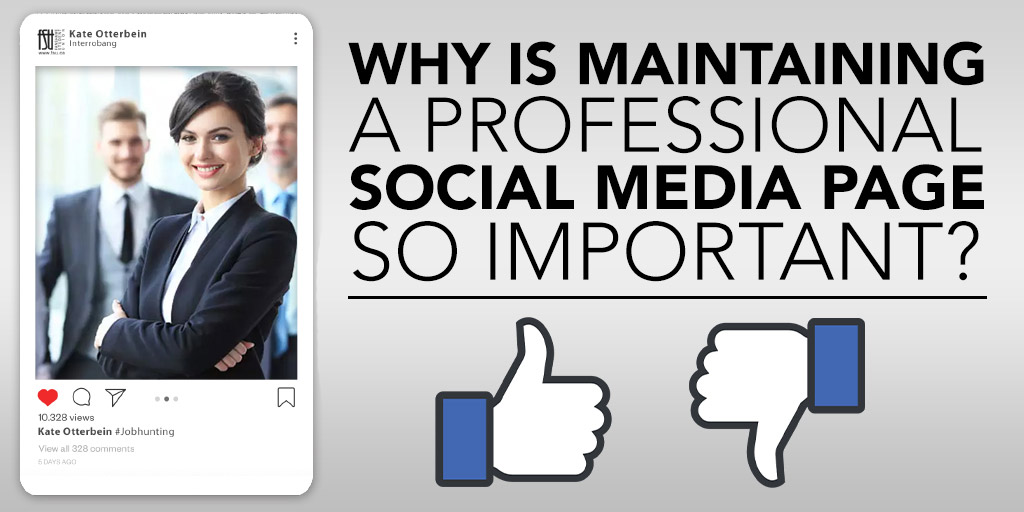Why is maintaining a professional social media page so important?
 CREDIT: FSU PUBLICATIONS AND COMMUNICATIONS
CREDIT: FSU PUBLICATIONS AND COMMUNICATIONSSocial media is the new normal, making everyone’s lives easier to access. However, many people don’t typically think about how it looks to a potential employer. When applying for jobs, and even just maintaining a job, employers have their eye on your social media. Believe it or not, it can make or break your job opportunities.
“An employer may receive whatever number of resumes and they will look at social media for those they are considering for an interview,” said Laurie Rintoul, an Employment Specialist at Pathways Employment Help Centre. “There’s things that they may see there that make them not want to interview you. Avoid pictures at parties consuming alcohol or marijuana. We have seen instances where employers have passed on someone based on those types of things.”
As an employer himself, Todd McCann tends to check social media first when he gets a resume.
“I think as an applicant you should be aware that they’re checking social media,” said McCann. “It kind of shows who you are.”
Employers often look at social media because someone’s online presence represents their company.
“You need to present values in yourself via social media that reflect the values of the company you want to work at,” said Rintoul. “Dressing inappropriately for professional or everyday environments, political comments or rants of racist, sexist, or homophobic nature, you don’t want those types of things.”
McCann expanded on the idea of representing the company’s values.
“Because of the image that my place of business upholds and the standards we have, we’re looking for certain things,” said McCann. “If someone is partying or things like that, it’s something you don’t really want to see in your business. If they’re doing that in their personal time, that’s one thing. But if it ever overlaps into the business side, it becomes an issue.”
Social media can be used to find red flags, but he said it can also be used in a positive way too.
“I look at some of their friends too. Sometimes through a friend of a friend, it might be somebody that I already know. Then I can go and start asking those people questions about this individual. It can be good because maybe by looking at their social media, I’m judging one way. But if I start digging a little bit more and ask somebody I know and respect, it may turn out I’m looking at it the wrong way.”
McCann understands that people enjoy having a social life on weekends and keeps that in mind.
“You can’t really blame people for having a social life and private life. I always keep that in the back of my head when I’m hiring. As long as it doesn’t come into play in my business or affect my business in a negative way. They could like to have fun on their own time, but when they come in, they could be very professional and be very good at what they do.”
Not only should the image your social media gives off be kept in mind, but there are also other factors that Rintoul noted.
“What is your email address? Is it professional or a silly nickname from when you were 10? We often recommend if you want to keep an email that all your friends use that may not be professional, just create a new gmail.”
She added that when applying for jobs, you can try and incorporate the company’s values on your page.
“Go check their website and see if they have values posted and see if you can make your social media reflect those values. Obviously new things you post, they can see when you posted it. But edit anything out and remove pictures that may be contrary to those beliefs. It’s also really important not to bad mouth previous employers. Employers see that as a sign that you might bad mouth them down the line.”
Rintoul encouraged anyone with social media that can be seen as unprofessional to delete that content and don’t rely on privacy settings.
“I would still remove things that might be detrimental to my job search. Losing a job opportunity over a picture on your social media is a sad thing to have happen.”
Be wary of how your social media pages appear to the public eye. Your page is a direct reflection of your workplace and their values.

















